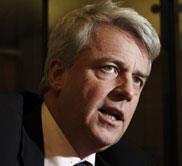Monitor could push for the value of NHS pensions to be reduced under the terms of the Health Bill.
Documents released alongside the bill highlight inequities between the private and public sector that Monitor will need to consider as economic regulator.
The impact assessment says: “Independent providers of healthcare may have been deterred from entering the market for NHS services because they perceive that incumbent NHS providers are given certain advantages – for example an affordable pension scheme – which mean that they cannot compete on a fair playing field.”
It says Monitor, as independent economic regulator with a duty to promote competition “could help address these issues over time”.
The impact assessment also states that it is the NHS that benefits from “the majority” of the “quantifiable distortions” within the healthcare market, for example in terms of tax, capital funding and staff pensions.
It says these “distortions” result in private sector acute providers facing costs that are around 14 per cent higher than an average NHS provider.
HSJ has teamed up with the NHS legal experts Beachcroft to provide exclusive legal and technical analysis of the bill.
Beachcroft partner Rachel Heenan said the wording of the bill effectively marked out a government “placeholder” in the discussions around the market distortion created by the NHS pension scheme and by the current agreement that NHS staff transferred to other employers are given a comparable pension.
The involvement of Monitor could result in the “dilution [or] abolition of the Fair Deal requirement to provide a broadly comparable pension scheme to the NHS pension scheme for staff transferring out of the NHS,” she said.
However, it could also mean “a reduction in the value of NHS pension scheme benefits accrued in the future.”
Before Christmas, NHS chief executive Sir David Nicholson said in a letter to managers that commissioning consortia would have “NHS employing authority status”, meaning transferring NHS staff would retain access to the pension scheme.
However the bill seems to leave this open.
It states that a commissioning consortia “must pay its employees such remuneration as it may determine and employ them on such other terms and conditions as it may determine.” This includes pensions.
Ms Heenan said: “It’s not necessarily assumed that there will be access to the NHS pension scheme” for consortia staff.
'Evolutionary' Health and Social Care Bill launched

Legislation to scrap primary care trusts and strategic health authorities, create commissioning consortia and give providers greater autonomy has been laid before parliament.
- 1
- 2
- 3
- 4
- 5
- 6
 Currently
reading
Currently
reading
Bill could lead to 'dilution' of pensions benefits
- 8
- 9
- 10
- 11
- 12
- 13
- 14
- 15
- 16
- 17
- 18
- 19































































5 Readers' comments